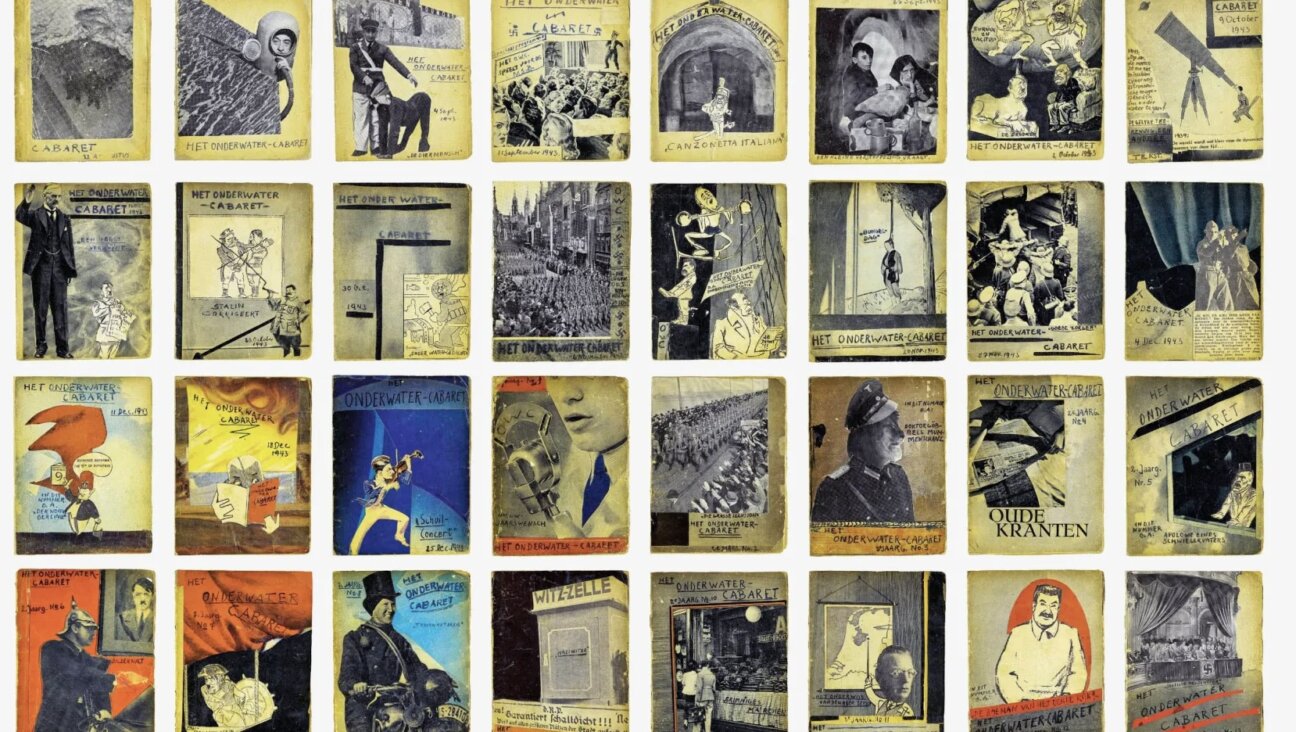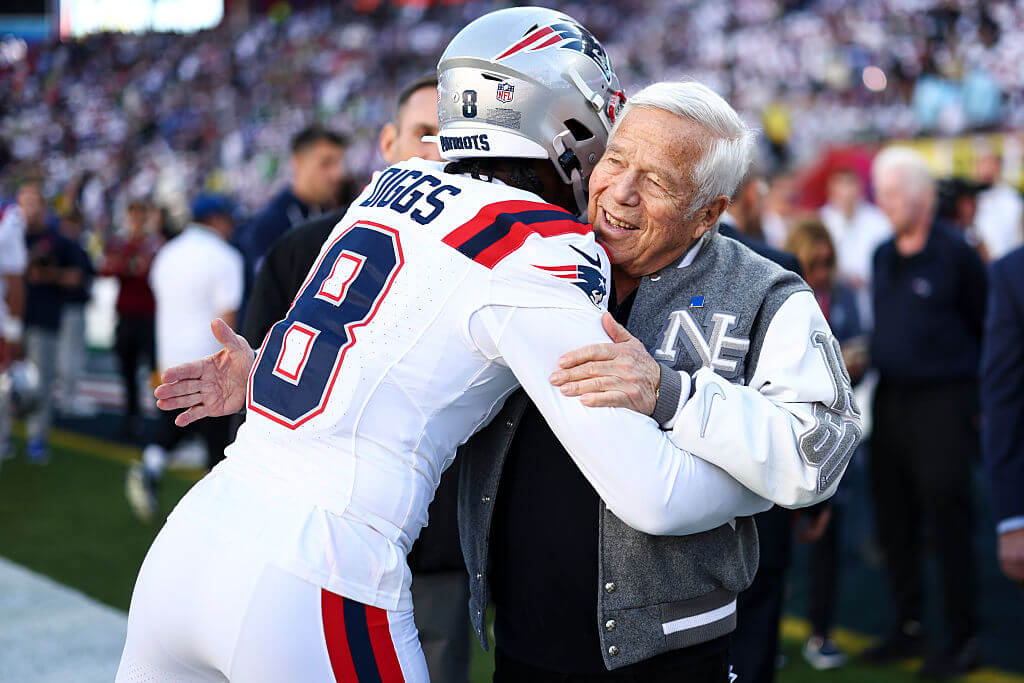On Father’s Day, remembering the daughter I lost twice
I always dreamt that someday we’d reconnect, but it was not to be

The author and his daughter. Courtesy of Jon Kalish
Twenty years after my daughter Meleia was shot to death, I still dream about her. In these dreams I am always trying to get to her so we can spend time together. But I always fail. They’re nocturnal manifestations of my lived reality.
Her name was derived from Malia, the Hawaiian form of Mary. Meleia (meh-lay-uh) was named after her maternal grandmother Mary, a warm, loving African-American woman on Long Island who accepted a white college kid as her son-in-law.
For a while my last name was included in Meleia’s hyphenated surname but after her mother remarried she decided to replace my name with the last name of Meleia’s stepfather.
There were other decisions I had no say in, such as whether Meleia would attend public or private school. My daughter was baptized without my consent. And worst of all, I was not consulted when a decision was made to cremate Meleia’s body.
Six years prior to her death I did a story for NPR explaining the Jewish approach to the end of life. I learned why we Jews have a person known as a shomer sit with the departed before burial. We believe a spiritual attachment exists between the body and the soul. So, the shomer keeps the soul company in the final hours before it’s laid to rest.
The powerlessness I felt about my daughter’s cremation was compounded by the uncertainty of how to mourn for her. Under halacha, traditional Jewish law, a Gentile can’t be considered your child. But I started to recite Kaddish for her anyway.
***
My wife and I divorced before Meleia was born. While Meleia was still an infant, I moved to Midwood where I rented an apartment owned by a prominent Orthodox rabbi. The move to Kings County was made so I could take care of my father in the last years of his life. We had been quite alienated. My father used a Yiddish word for my wife that I found objectionable. I didn’t see or speak to him for five years and when we finally re-connected he was frail and disabled.
There I was in Brooklyn’s Midwood, a very shomer shabbos neighborhood, determined to be with my father on his way out and spend as much time as possible with Meleia while she was on her way in. It was difficult to be away from my father for more than a week at a time but I managed to make it out to the Bay Area three or four times a year to see my child.
I would go for a week, which was never enough, and spend every possible moment with her. We went to the best playgrounds in the East Bay and, as I pushed Meleia around Berkeley in her stroller, I was frequently stopped by strangers who remarked how beautiful she was. During these westward treks I gradually learned some of the basics of fatherhood: how to cope with a toddler careening through the terrible twos, how to do the burrito fold on spent Pampers.
One time I lay on the floor beside her as she slept in her playpen, listening to the sacred sound of her breathing. I was overwhelmed by the bond I felt with her. All I could say was Baruch Hashem, Baruch Hashem. You live in Midwood, long enough, you start to sound like a frum Jew.
But during one visit, out of the blue, Meleia said, “I hate you. I wish you were dead.” It shocked me. I suspected it was something she’d heard her mother say to me over the phone. Another time I went out to brunch with her blended family and watched her sitting in her stepfather’s lap. I sat and stewed, thinking about how she called her stepfather Dad but called me Jon.
***
My visits to see Meleia weren’t all traumatic.
She and I once spent a week at a circus arts camp in Northern California. Meleia and the other campers got to live in huge teepees while they learned to juggle, walk a tightrope and clown around.
I remember a trolley ride from the San Francisco Zoo to her mother’s office when Meleia sat sprawled in my lap, enveloped by my arms. It’s when she said, “I love you, Daddy,” for the first time. Baruch Hashem, Baruch Hashem.
On each visit, Meleia was speaking a bit better and was a little more difficult to lift onto my shoulders for a piggyback ride. When I went out to see her in April 1989, Meleia gave me a hug with a strength I did not expect from a girl who hadn’t yet turned four.
When it was time for that visit to end and for me to head to the airport, I felt a tightness in my throat. It was the worst sadness I have ever known. Back in New York I got word that, after I left, Meleia got up on the couch and started crying. A few days later, I was in the Reuters newsroom filing a story on the spring fashion shows when I started sobbing uncontrollably in front of a video display terminal.
I was haunted by the feeling that I was making a terrible mistake living so far away from my daughter as she grew up, that I was failing her. I also felt trapped. I couldn’t leave New York and abandon my father or an autistic brother on Long Island who I visited every month.
***
I tried to remain in my daughter’s life. But after what seemed like the never-ending battles over visitation coupled with a child-support crisis, I reached a breaking point when Meleia was 12. I stopped visiting her. I stopped calling on the phone.
Four years passed. Meleia was enrolled in a social justice school within a school at Berkeley High School, and serving as president of the Black Student Union. During her sophomore year, she and a classmate showed up at my loft in Manhattan unannounced. Their class was en route to Cuba.
A year later she visited me again when the kids were bound for Vietnam. On that last face-to-face meeting, Meleia proudly shared some news — she was being recruited by an Ivy League college.
“I’m f–king brilliant,” she boasted.
They were the last words my daughter said to me.
When she went to college, I tried to call her on her birthday but there was no answer, no response to the voicemail message I left, no call back.
***
Meleia ended up going to Dartmouth. She was back in Berkeley in the summer of 2005, working at a summer job that provided services to low-income women. In the early morning hours of July 17, Meleia got into a confrontation with some UC Berkeley football players who had apparently approached her women friends and spoken disrespectfully to them.
According to court testimony, Meleia used her cell phone to call a high school friend and urged him to come to the scene of the conflict with his gun. He soon arrived and started shooting from across the street. One of the several bullets he shot grazed the wrist of a football player but another hit Meleia in the heart. She died at the scene. She was 19.
It was a big story in the Bay Area: Ivy League Student Slain By Friend. I flew out for Meleia’s memorial. It was surreal walking down Shattuck Avenue in Berkeley and seeing my daughter’s photo on the front page of all the newspapers. The Berkeley High School gymnasium was packed with more than a thousand people for the memorial. I walked in without greeting Meleia’s mother or stepfather. There was a section reserved for family on the gym floor, but I didn’t sit in it.
Three years later I flew out to the Bay Area again to make a statement at the sentencing of the man who killed her. He received more than 20 years for voluntary manslaughter and other convictions.
“I wish to inform this court that I lost my daughter when she was 12 years old,” I said.
I closed my remarks with an anecdote I thought best summed up my struggle to be Meleia’s father. I recounted the time I spoke to her on the phone as she was going to bed. I told Meleia that I was sending her a kiss from New York and that it would land on her cheek while she slept. I’d never heard her mother tell her that Santa Claus and the Tooth Fairy weren’t real, but I remember hearing her tell the child, “Kisses don’t fly.”
***
Every year when Father’s Day rolls around, I grimace when store clerks wish me Happy Father’s Day. Sometimes I listen to the old answering messages or look at photos of Meleia before she became a contentious teenager. I have a video of her with her class visiting an orphanage in Vietnam that housed victims of the herbicide Agent Orange. Did she know her dad spent seven years covering the Agent Orange story? I wonder what would’ve become of a daughter who was so engaged with the world of social justice. In the years that Meleia and I were estranged, I used to dream that someday we’d re-connect, maybe when she was an adult. But I realize that was just another dream.















